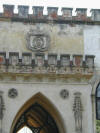Intervention of army Warsaw Pact 21.august 1968
,, Et si omnes ego non ".
 the day the author was in the service Assistant of Supervisor at the entrance to the barracks Czechoslovak 251st Air Defense Artillery Regiment MU 5100 from Vysoké Mýto. Soldier Pavel Ondrejkovič-Sandor de Szlavnicza eldest son was born in Trenčín in one of the most respected and oldest families in the territory of our country. His father, an officer of the profession in the years 1934-1954 captain tank Aladár O.-S. de (for political reasons discharged from the Czechoslovak army in the year 1954), mother clerk Alžbeta O. born Ličková.
the day the author was in the service Assistant of Supervisor at the entrance to the barracks Czechoslovak 251st Air Defense Artillery Regiment MU 5100 from Vysoké Mýto. Soldier Pavel Ondrejkovič-Sandor de Szlavnicza eldest son was born in Trenčín in one of the most respected and oldest families in the territory of our country. His father, an officer of the profession in the years 1934-1954 captain tank Aladár O.-S. de (for political reasons discharged from the Czechoslovak army in the year 1954), mother clerk Alžbeta O. born Ličková.Entering the service of 20 August 1968 at 15.00. Took over the distribution list, alarm directives, red braids and supervisory nostril in wooden plates interstitial 60 pieces of live ammunition into the assault rifle SA vz. 58.
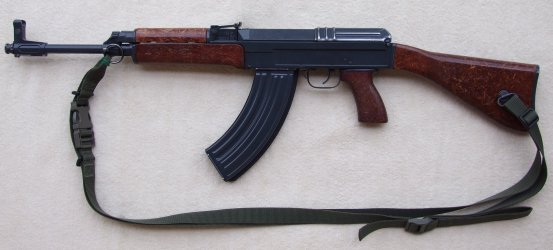
After returning from the holiday in July 1968 in Bratislava author already asked in July 1968 cers from the 2nd battery to the exchange of its easier and more comfortable assault rifle SA vz.58 V with folding stock for assault rifle SA vz.58 P with a fixed stock, as it was more accurate and, in his view, the more the thenthrew a sharp fit. The Elderly of the battery, his labor officer, replaced his partially worn clothing and equipment on request.
In May 1968, in Moscow again, Soviet partner, as in 1967, submitted to the Czechoslovak delegation a proposal to place two Soviet divisions in the Czechoslovak border, which was also rejected.
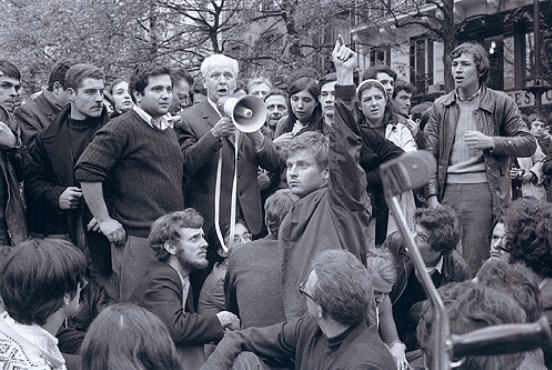
May-Juni 1968 Louis Aragon and Jean-Paul Sartre was involved in a student strike at the Sorbonne. According to an estimate of the situation then Czechoslovakia author's involvement in the matter of the French Government for the rebellion at the Sorbonne and strikes breaking out of the game. In June and July have already seen the only solution: mobilization, or accession to the requirements of the USSR, Poland, GDR, Hungaria and Bulgaria. In August, the real aid to Romania and Yugoslavia only partially (Romania mobilized).
Already 19 August 1968, despite the semblance of peace in the country and the holiday period had married and unmarried officers and Warrant forbidden to leave the seat and the crew could not visit their families. Their hostel was right next to the main entrance of the barracks just opposite the railway station Vysoké Mýto. 21.00 hours without a word wolking the regimental staff officers and their houses.
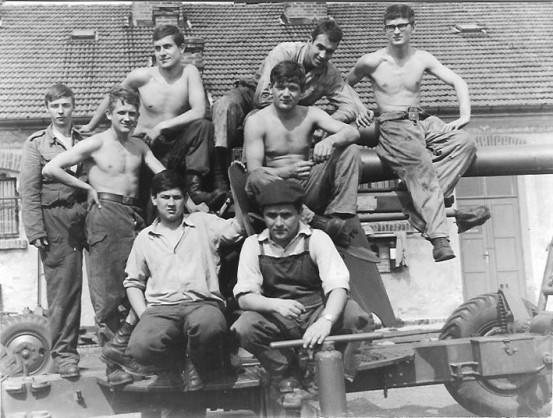
Vysoké Mýto august 1968. 2-nd. Firing battery, pictured her 85 mm anti-aircraft gun model 44 S PLK KS 18 gun crew eight soldiers (the author was one of them) * Performance: Maximum speed target: 200 m / s (720 km / h), height maximum: 12000 m, 8500 m efficient, long-distance range: maximum 18000 m, 11500 m efficient, Rate of fire: 15-20 shots / min.
The author realized that something was wrong (he was the son of an officer of the profession). Around 22:15 o'clock in the evening the guard in the barracks, the phone rang from the circuit with the command to call the Supervisory barracks, which the author after receipt phone conversation ordered arouse officers of regiment in their hostel.

ČSLA. Czechoslovak 251st. anti-aircraft regiment of Air Defence State, MU 5100 Vysoké Mýto, its status and structure on 21 August, 1968.
Author was in place after 30 seconds, but officers was dressed and to have girdet belts with official weapons. Take to the staff of regiments. After as author unoficial to learn about occupation our state with foreign armys. formally about 22.30 o clock.
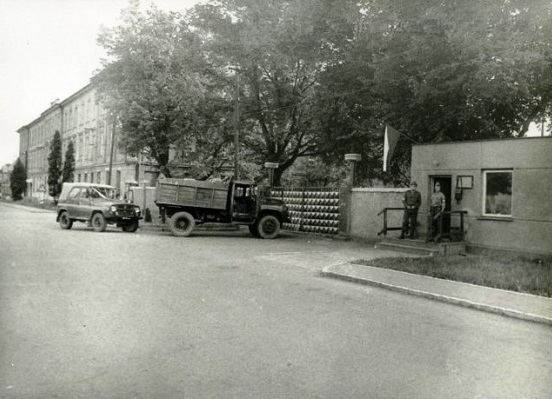
After his displace taking to place guard before front door to baracks. To have in service most strong weapon and mores patrons. Scarce new direcly, then held by his consideration. Do not stay to his place next entry, but tucked patron to barrel his carabine and turn in to ditch with weapon maybe 15m in the right of front door. Other officers of the hostel is lost somewhere. Time to intervene quickly. Round 4 o clock morning as slowly came four figure in the foreigns uniform. Author noisily stretched breech and emphaticle their called, that as to him not at all came in and in case of no, that did not keep his hand in weapons. Thoose consulted as between self and the far. After hour and half as old revealed colonel of Soviet army and of respectful distance from the author asked, In daylight to end his 24 hours service comes to leader of regiment even foreign officers. That was received Commanding General of Soviet army whith leader regiment, which meanwhile the 23.45 o clock delivered linkman of his flat in Vysoké Mýto. Soviet colonel as then away. Author admited, that soviet officers eczactly filed his directives with the intent to keep him an excuse for shooting. Was not worst, nor best soldier of regiment PVO (originaly to have other army specialization), but realizes, that his regiment loses every minute possibility to his fighte fan out. Author acknowledges, that was in his place decisive fulfil one s duty of the soldier of the ČSLA. He had, however, notify the supervisory officer, that soviet general calls for acceptance. Maybe 7.00 o clock as came soviet military car GAZ 69 and planted maybe 50 m of entry soviet general. Then came to walk self to entry and civilly asked to author for announce his visit. After reaction with author si ho už supervisory officer of regiment came only assume.
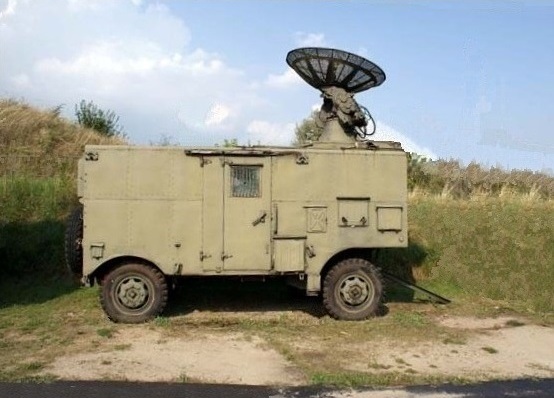
Shooting radar SON 9A of Soviet production of which Czechoslovak 251st anti-aircraft regiment PVOS in Vysoké Mýto in the year 1968 armes.
Leader from regimennts held meeting with soldiers of national service on that note soldiers with formed situation. In thoose meeting was elected author to crisis comitee of the regiment, as deputy soldiers of national service. Soldiers fulminate gived show his discontent with pasivity and helplessed officers corps their regiment. Contrariwise leader of battery in which served author already reach estabilish connection unstandarte with soviet officers.
Author was skeptic to thier certain activity. For example politic leader of regiment coloroued in kitchen of regiments red flag to black and after their put sth up for baracks. To dining-room of soldiers bring legal instrument 2000 wordes, which soldiers of national service demonstrate signed, but officers are only some. On the second day in a field near the barracks focused intervention Tank Regiment 11th Armored Division of the Polish Army. His tank canons was directed to caserne of 251st regiment PVOS Vysoké Mýto. In the town of Vysoké Mýto, intervention units of the Polish 10th Panzer Division (JW 2843) commander Col. Marian Koper.
_____dunaj20.140112_104812_23.jpg)
Second Polish Army 22.08.1968 7 AM o’clock. Report : Morale amongst the troops on exercise is very good. The men are convinced that they have entered Czechoslovakia in a good cause. An example of this was provided by the troops stationed in the Jaromer (from 24th Tank Regiment) who firmly opposed efforts to get them to disobey orders. These efforts were made by the assistant regimental commander for political affairs of a Czechoslovak People’s Army 101th Regiment chemical protection (MU 9983).
In the autopark author in the minitor of radar SON 9A observed many aims - avions of intervents, which flew in the air area of states.
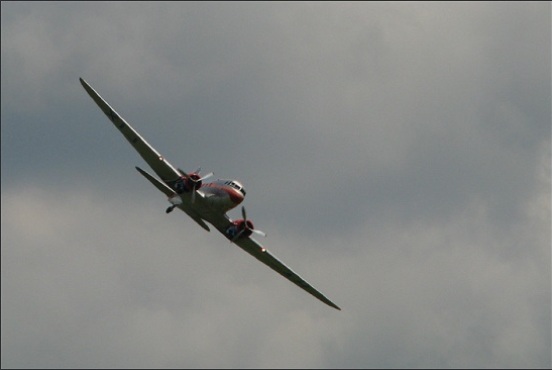
laughed a lot, when they saw flight too old transport avions Lisunov Li 2 of the Polish Air Force, triggering anti leaflets of coarse paper with spelling errors.
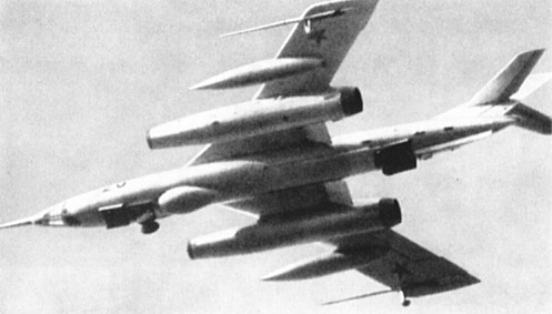
In addition to the common types of military aircraft frequently fly over barracks of Czechoslovak 251st Air Defence Regiment of State defence in Vysoké Mýto twin-engine supersonic reconnaissance bomber fighter Yakovlev Yak 28P from Military Air Forces of the USSR from the 149th Fighter Bomber Aviation Division, Opinion of Šprotava Headquarters in Subordinate 4th Air Force, Lehnica Headquarters Opinion. 164-й отдельный гвардейский Керченский Краснознаменный разведывательный авиационный полк, Як-27Р, Як-28Р, Ил-28Р. the first squadron of the 164th independent Guard Reconnaissance Air Regiment used IL-28R Beagle, while the 2nd and 3rd squadron used high speed Yak-27R Mangrove reconnaissance types.
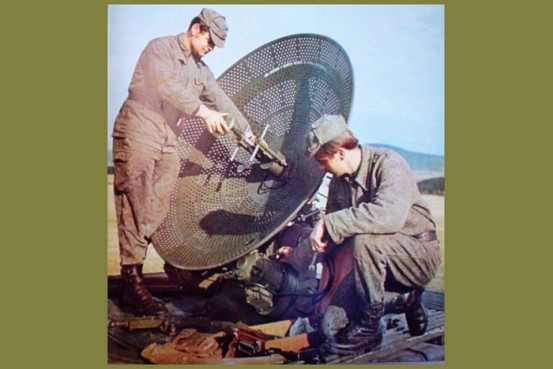
The author fleet on-screen shooting radar SON 9A observed a number of targets - the interventionists aircraft that moved in the airspace of the State. For 251st Air Defense Artillery Regiment Vysoké Mýto has already been given the passivity of its officer corps despite its very strong armor unsolvable situation militarily. At the meeting of the crisis committee Regiment author publicly expressed its doubt on the future of the Czechoslovak Republic for the repeated passivity of the armed forces since 1938, regardless of the political establishment.
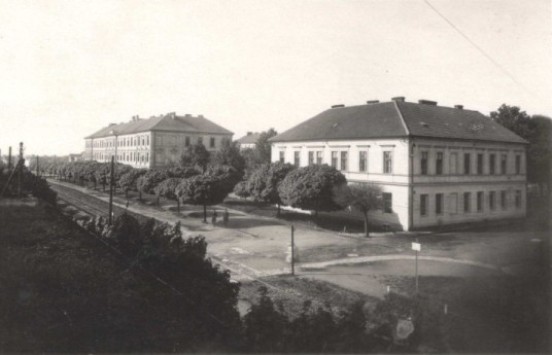
251th Regiment of the Air Defense of the State in the Vysoké Mýto on August 21, 1968.

The author, as a 16-year-old, was very well-oriented both in the business and in the private sector in the Balkans and the USSR. Until the violation of the Basic Military Service by train from the Lower Danube romanian Port of Galati in October 1966, he stayed in Czechoslovakia for a maximum of 3 months.
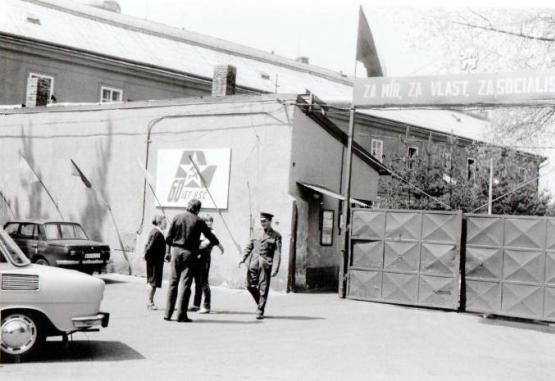
Barraks in the Ostrov nad Ohří around the year 1977. To the left of the entrance house for supervisory battalion and a guardhouse so. bass. The back of the building of the former monastery on the ground floor kitchen, dining team, dining officers quarters 3rd Company and upstairs Headquarters Battalion, dispensaries etc.
The author, as a 16-year-old, was very well-oriented both in the business and in the private sector in the Balkans and the USSR. Until the violation of the Basic Military Service by train from the Lower Danube romanian Port of Galati in October 1966, he stayed in Czechoslovakia for a maximum of 3 months.
On call order number 250/66 Pavel Ondrejkovič on Oct. 8, 1966, he joined the General Military Service on October 20, 1966 and presented at the 3rd Company of the Czechoslovak 62nd Automobile Battalion of Military Unit No 4404 in Ostrov nad Ohří. The Commander of the 62nd Battalion was Lt. Colonel Drexler (the author later recalled from the Military Base Staff serving there that was strictly refusing to occupy the troops), Commander of the Underoficcier School was First Lieutenant Randuška, Commander of the 3rd Automobile Company Captain Krejza (the author of the commander), Chief of Staff and Best Shooter 62nd Battalion was Major Karel Randák.
Vojaci ZVS VÚ 4404 Ostrov nad Ohří boli dvakrát volaní ku tzv. kontrášovi na pohovor v r.1966 a 1967. Autor sa ho tiež absolvoval, avšak pozorne sledoval meniaci sa politickú situáciu. Vzhľadom na to ako syn dôstojníka vyhodnotil úroveň tzv. kontráša za nezodpovedajúcu, protismernú. Mal totiž skúsenosti aj s vedúcim kádrového oddelenia ČSPD n.p.
In 1966 Marta Ličková came into contact with Solzhenitsyn, who was approached in connection with the possibility to publish an article in the weekly "Slovenka" for which she also translated. As a result, in Bratislava's "Pravda", January 7, 1967, a section of the "Right-to-treat Cancer Unit" was published.
In autumn 1967 François Mitterrand was accepted by President Antonin Novotný. In a three-hour meeting, Novotný urged the Czechoslovak Republic to look for business partners in the West. The President said he recently delivered a statement in Moscow at the Military Academy that he was about dissolving the NATO and Warsaw Pact covenants and finding another way of security. Proposed an agreement between France and Czechoslovakia in the international sphere, economy, etc. He considered it appropriate to start the talks between France and Czechoslovakia already in the current situation.
Signs of contacts of the 2nd Department of the Chief Staff of the Czechoslovak Army (ČSĽA) were recorded in 1967 by the 62nd Automobile Battalion in Ostrov nad Ohří. SDECE - Documentation Service Extérieure et de Contre-Espionnage. Général Eugène Guibaud ?
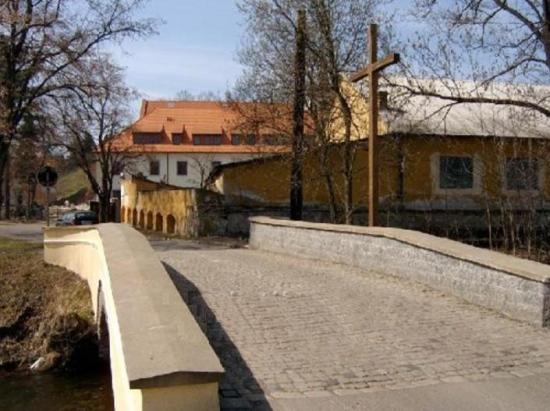
Barracks of MU 4404 in the Ostrov nad Ohří after 43 years today. 62nd Battalion was subject to 20th Motorized Rifle Division in Karlovy Vary. On the call-up no. 250/66 Paul O.-S. de on October 8th, 1966 he joined the performance of PSO on 20.10.1966 and presented at the 3th Company 62nd Automotive Battalion MU 4404 Ostrov nad Ohří. Leader of battalion was Lieutn-col. Drexler (author later hear of soldiers ZVS, that Lieutn-col Drexler is on the occupying army was apparently strictly forbidding), leader of UOS First lieuten. Randuška, leader of 3th Company Capt Krejza, leader of staff the troop Mjr Randák). To illustrate the physical fund its authorstates that the training of 5 m rope climb with a smile 5 times in a row without a grace note (if it was ordered, it would certainly repeat5 times). It was most of the battalion. In athletics discipline run at 2000 m was in goal for the second soldier, who was an athlete civileeasy. In the accelerated transfer of the Battalion Ostrov nad Ohri through Jáchymov was the gift of God first (held whenever the troopsin greater numbers ZVS avoid compulsory morning warm-up). The battalion commander also indirectly punish commanders of platoons and companies, as an accelerated movement were obliged to pass by his soldiers.
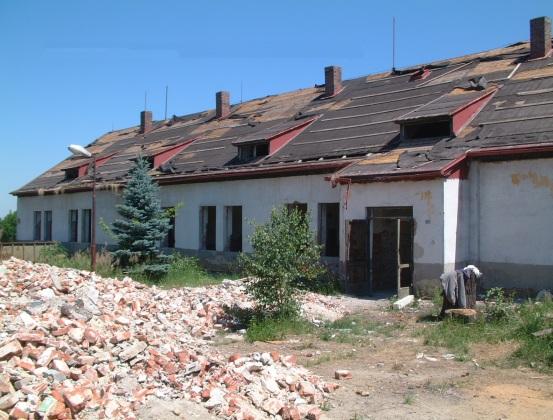
Barracks of the UO School and training soldiers MU 3105 vor Carlsbad division in the Podbořany.
For exemple authors of the 27 year old company commander before Jáchymov non-governmental, even though its branches carry only a gun. In Ostrov nad Ohri was usually in the winter -20 degrees. In the barracks MU 4404 in winter could. Hot water was not at all. Profile no problem to sleep with such a winter snow 2 hours, even though he was only dressed in uniform vz.60, it was only the brownpants and wearing military vz.30 Canada, which in summer heat and winter cold. Troop was subject of 20th moto- shooting division of the Karlsbad. Paradox military time, during which Pavel Ondrejkovič often visitet in the Karlsbad Grandhotel Moskva - Pupp, visit which you can not afford many officers (easy to be mentally, spend more in the fourth group price) completed his move to the MU 5100 Vysoké Mýto.
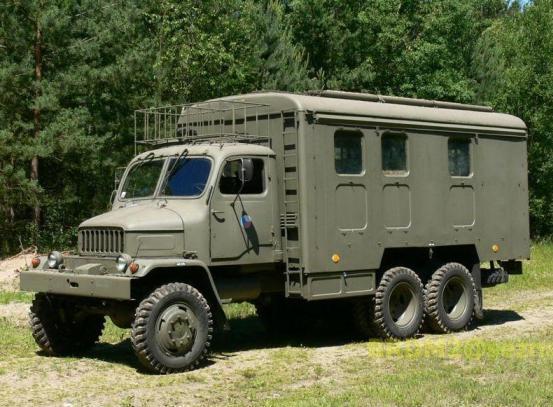
Military car workshop Praga V3S PAD was well equipped, it was not what the author missed it. Tatra T 111 was, however, a 25 km / h faster. On track and field was more stable ride was gliding, its overall design was considerably more robust. Commonly exceeded its capacity and 2x, how the Tatras are disposed always drove. The less the bearing ground have clearly had the upper hand Praga V3S.
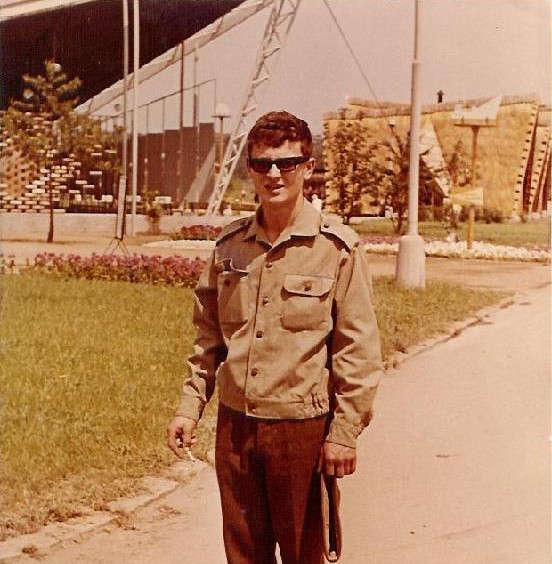
A business trip with a bus relocating ČSAD national enterprise from MU 4404 in Ostrov nad Ohří to the military hospital in Pilsen for the usual treatment of the dentist's author in May 1967. The third Arab-Israeli war, the Six-Day War begin with Israel's air strike on Egypt early on 5th June, 1967. At least 14 days before the onset of hostilities, the Sinai peninsula was concentrated in Egyptian troops. The author of the MU 4404 barracks watched the news of Czechoslovak television as in the Sinai Peninsula the Defense Minister of the Czechoslovak, army General Bohumir Lomský and the Polish Defense Minister Marshal Spychalski observe the fortifications of the fortified position of the Israeli position from the Egyptian trenches. Soldiers, sergeants, and officers of the 62nd Car Battalion in Ostrov nad Ohří had interrupted vacations as well as leaving the crew. On 5 June 1967, midfielders were called into the army at MU 4404, and after that, spare parts, including new engines, were imported for non-road vehicles. The rapair section of the Battalion and the companys mobile workshops PAD continued to work together until 24 hours and the worn-out gear was replaced by soldiers.
The subsequent rapid defeat of the Arab armies was a serious reason to think of the author and soldiers of the battalion over the state of the Czechoslovak Army and questioned their trust in the top leadership of the Czechoslovak Republic and the army command. In the light of this defeat, the shortcomings in the personnel and numerous under-exacted MU 4404 were not seriously serious. They stayed in accommodation, food, food storage and quality, fuel management, training and hygiene. In the winter of 1966/1967 there was no cooking in the quarters of the 3rd Company and there was no warm water in the barracks. During the whole winter the soldiers swam 1X. The diet was low and the diet was also good. During the first 3 months of intensive training, the author missed an average of about 10 cents per day from his civilian financial means. His civilian finances also benefited from food in restaurants. The bulk of soldiers were 24 hours a day and therefore did not participate in training, training, maintenance and leisure activities.
62th auto-battalion in Ostrov nad Ohří was supplying him with the first-ranked 20th Moto-shooting division with ammunition and fuel. His incompetence would be reflected in the wartime conflict of the 20th Moto-Shooting Division in Karlovy Vary. The chain is as solid as its weakest article. The author notes that the deficiencies, which are common in MU 4404 Ostrov nad Ohří, however, in MU 3105 Podbořany, or in MU 5100 Vysoké Mýto were not possible at all.
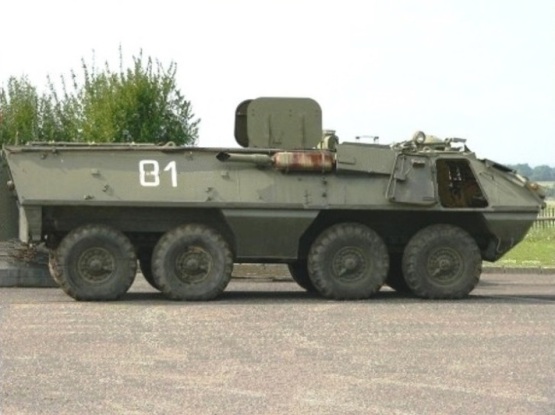
The most modern armored OT-64 SKOT transporters from the 20th Motor Rifle Division in Karlovy Vary regularly participated in joint exercises with the 62nd automobile battalion in Ostrov nad Ohří for which it was impossible to keep them in the column. The OT-64 reached a speed of up to 110 / km / h on a straight line.
During outtings visited to town library of Vysoké Mýto. Here he received to his hand newsweek Literární listy. (in his canselary ich mal too leader of regiment). In they assumed the continuation amendment Alexander Solženicyn ,, One day of Ivan Denisovič ". Maybe thema was new, but not for author. She reminded him his childhood and behaviour states organs to his family. Author si evidently remember too article in thoose newspaper for month ego the august 1968 displaying concern of possible intervention Soviet army to Czechoslovakia.
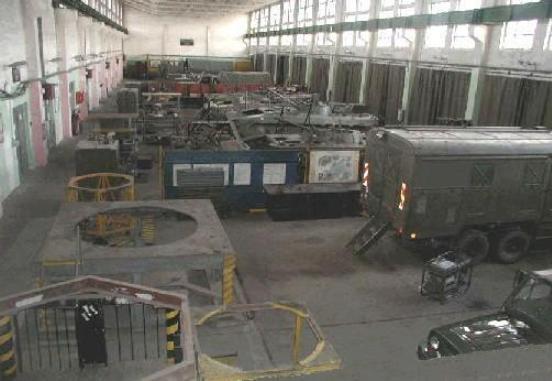
Divisions repair shops in the Podbořany. In the year 1967 Author here was detached to three months in exchange specialists.
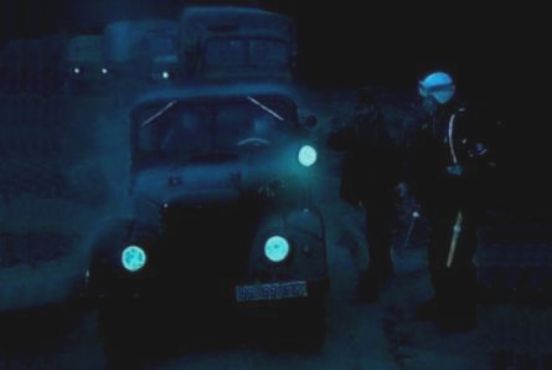
Military off road vehicles GAZ-69A and Praga V3S during night exercises.
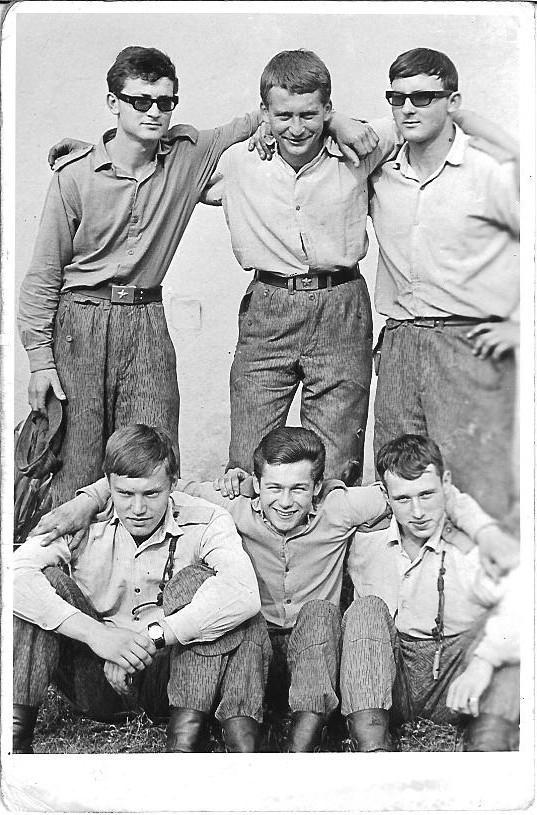
Autor between curzists in the Podbořany, in the year 1967.
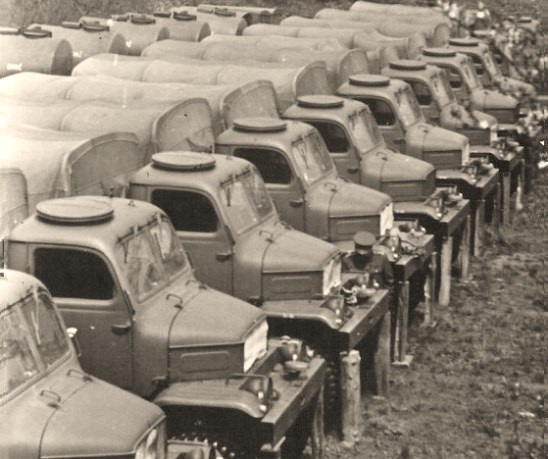
NZ offshore military trucks Praga V3S of the 62nd Automobile Battalion with loaded fuel tanks. Behind them towed diesel tanks for the 20th Motorized-rifle Division in Karlsbad.
Oblasť Karlovarska bola charakteristická ťažkými životnými podmienkami a s toho vyplývajúcej nespokojnosti obyvateľstva. Vo vtedajšom Západočeskom kraji ešte žila početná nemecká menšina (42 000), ktorej nespokojnosť kulminovala v roku 1967. Tento rok sa odsťahovalo do NSR 5 995 občanov.
Plenum of the Central Committee of the Communist Party of Czechoslovakia 3-5. January 1968 decided to separate the functions of the First Secretary of the CPC Central Committee and the President of the Republic Antonin Novotny was deprived of the post of the first secretary of the Central Committee of the Communist Party. The compromise solution was the election of the then former secretary of the CPS Central Committee, Alexander Dubček. His parents were functionaries of the Central Council of SZPB and recognized Alžbeta Ondrejkovičová born Ličková from the meeting of the Office. They also recognized her family from Trenčín and in this connection they also uttered a wailing at the meeting that her mother Alžbeta Ličková born Stiglitz did not do anything for her parents from Bánovce Paulína Dubčeková also met the Ondrejkovič family. In this connection, the events in Trenčín surrounding the family of Alžbeta Ondrejkovičová in 1953 pointed not only to Rudolf Strechaj, Karol Bacílek, Jozef Lietavec, but also Štefan Rais. One of the main tasks of their son, Alexander Dubček, was to face attacks against the Communist Party and against socialism.
At the 62nd auto-battalion of MU 4404 Ostrov nad Ohří, since January 5, 1968, the content and course of compulsory Political Training of Soldiers has changed radically.
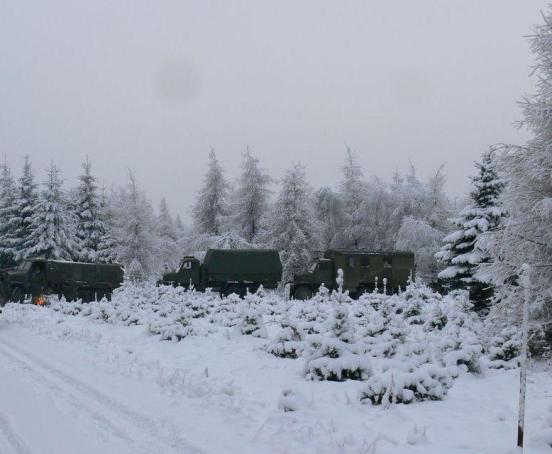
Weekly Winter Exercise of the Czechoslovak 62th Automobile-battalion from Ostrov nad Ohří in the Ore Mountains. During the night, it was usually from November to March - 30 degrees Celsius.
The President of the Czechoslovak Republic, Antonín Novotný, rejected the placement of Soviet troops on the Western borders. In In 1967, the Czechoslovak military intelligence direct contacts with Deuxième Bureau de ľ État-major général. (Second Department of the General Staff - French Military Intelligence). The author obtained direct information about this during the GMS performance. In In 1967, the Czechoslovak Ministry of Foreign Affairs established contact with the president. candidate for the Republican Party, Richard Nixon, and invited him to secret unofficial talks on March 23, 1967 in Prague. Military intelligence service became interested in the person of the author, but did not dare to cross certain boundaries due to his family ties with the influential economic circles of Canada, with which President A. Novotný was interested in establishing relations. Military intelligence service Salamons arranged the transfer of the author from Military unit 4404 to Military unit 5100. In January 1968, L. I. Brezhnev and the Politburo of the Central Committee of the Communist Party of the Soviet Union A. Novotný were fed up. The first one was activated by Vasil Biľak, from January 1968 the first secretary of the Central Committee of the Communist Party of Slovakia.
After the author was transferred on February 16, 1968 from Military unit 4404 in Ostrov nad Ohří to Military unit 5100 in Vysoké Mýto, the author regularly visited the town library on the square in Vysoké Mýto and since May he also visited the swimming pool of Tyrsh. In the library he got into his books Literary Sheets (all numbers had regimental commander in his office). They went on to continue the novel by Alexander Solzhenitsyn, "One Day of Ivan Denisovič", the events that he described were somewhat new to the author, but the author reminded his childhood and how the Stb and state authorities acted organs to his family. published political commentaries in favor of the process and the forecast of the occupation of the CSSR by the military units of the Warsaw Pact.
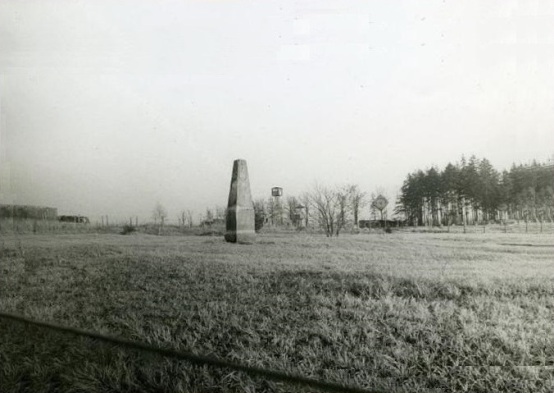
In the spring of 1968, in the Break in training of 2nd Fire battery from the 251th Regiment of the Vysoké Mýto, the author thought about the forgotten memorial of the soldiers who died on July 3, 1866 in the Battle of Hradec Králové over their role of CSLA soldier. On that day, about 100 meters from the monument, the airplane Let L-200A Morava was crashed, with leading workers at the factory in Choceň with fatal consequences. The soldiers of the 2nd Batteries watched as the commission presently examined only its debris ripped like paper.
Antonín Novotný, on March 22, 1968, resigned as president of the state.
On March 30, 1968, the National Assembly of the Czechoslovak Socialist Republic, on the proposal of Alexander Dubček, elected General Ludvík Svoboda as President of the Republic.
On April 8, 1968, President General Ludwig Svoboda appointed a new government headed by Oldřich Černík.
The 251st PVOS Regiment also changed the content and course of compulsory Political Training of Soldiers. The discussion was obligatory. Despite the fact that most of the regimental soldiers were graduates of a secondary school with a school-leaving examination, they were unable to orient themselves in the current political situation. The Slovaks served very little in the regiment, none of them in Bratislava. The food, accommodation and conditions for personal holiday spending by soldiers were better than in Ostrov nad Ohří.
From the position of the President of the National Assembly of the Czechoslovak Socialist Republic, Bohuslav Laštovička resigned on 18 April 1968. Josef Smrkovský replaced him.
.201122_202332_23.jpg)
Ivan I. Jakubovskij, commander-in-chief of the Warsaw Pact, arrived in Czechoslovakia on April 24, 1968. He discussed military exercises on our territory. He suggested to the Minister of Defense Martin Dzúr that the command of the Warsaw Pact could directly dispose of two Czechoslovak divisions. The Czechoslovak side rejected this, as well as the proposal that the military exercise planned for September be postponed to May.
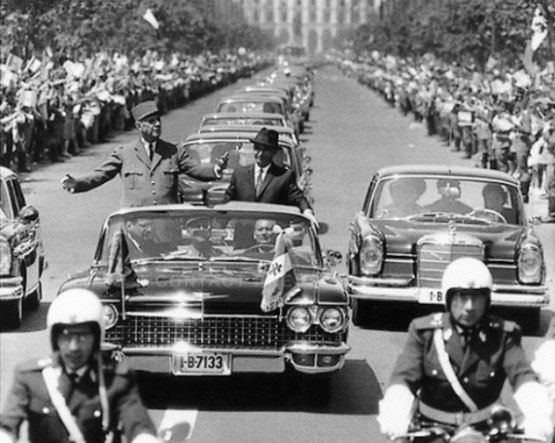
On May 14 and 18, 1968 Nicolae Ceauşescu was the first great triumph. The visit of General Charles de Gaulle was the beginning of his meeting with great personalities. It was the last major route of the French General de Gaulle. The students occupied the Latin Quarter, and the ideals of the young generation were defeated at the Parisian Barricades. On the other hand, the Romanian newspapers announced on the eve of de Gaulle's visit a new expression of the party's interest in the young generation: the legalization of ten years of compulsory general education. In preparing for a visit to de Gaulle, he addressed the Romanian ambassador's intention to publicly address issues of respect for the independence of interstate relations and the "need to develop international co-operation as an alternative to solving military blocks." He assured the host's emissary that he would not interfere with the internal affairs of the hosts in conversations and speeches. Two years earlier, the President of France visited Moscow and in the autumn of 1967 he traveled to Poland. In his speech in Warsaw, he declared an unfriendly confrontation of two major military blocs that divided the planet into unacceptable.
.201122_202332_23.jpg)
On 20-30 June 1968, in the territory of the Czechoslovak Republic, the military exercise of the states of the Warsaw Treaty took place under the name of Šumava.
On days 25-26. June 1968, the Czechoslovak Parliament passed a law on judicial rehabilitation and financial compensation for victims of communist dictatorship and an amendment to the Press Act, according to which censorship was inadmissible.
On June 27, 1968, a manifesto of 2000 words was issued. Reporters responded to the manifesto as a challenge for counter-revolution. During the meeting, Dubcek Brezhnev telephoned the 2000 manifesto, calling it "the onset of forces that trigger the counter-revolutionary situation." Manifesto published by the Czech periodicals Literary Letters, Práce, Zemědělské noviny and Mladá fronta, the Smena youth journal in Slovakia.
At the headquarters in Milovice on June 27 at 6 pm, Lieutenant-General Alexandr Mayorov reported in the presence of the commanders of the 1st Army of General Veselý, the 4th Army of General Stanislav Petržila and the Reserve Army of General Samuel Kodaj, the readiness of the 38th Army Commander to Lieutenant General Vasil Valo. Defense Minister Colonel General Martin Dzúr, Marshal Ivan Jakubovsky and Army General Kazakov were present. The Minister of Defense asked the Czechoslovak Socialist Republic to ask several questions to the 38th Army Commander. Jakubovský agreed. "Comrade Commander of the Army, will you deploy atomic strikes?" "Yes comrade minister, we're planning it". General A. Mayorov said the number of atomic strikes in combat operations on "enemy" objects. "But there, comrade army commander, citizens live. How do we look at it?". Jakubovský, who was irritated by the questions, stirred up the conversation and settled for political guidance. It was obvious that it was in this matter that there was a fundamental contradiction not only between the command of the Czechoslovak army and the command of the Soviet armed forces, but also between the political leadership of the USSR and the Czechoslovak Socialist Republic (source: Invasion of Czechoslovakia 1968 Testimony Commander p. 115-116).
Around 600 to 800 nuclear strikes (from both sides) to a depth of 300 km were planned to be carried out in the army offensive operation. From the smallest 152mm calibers through tactical and operational-tactical missiles to air strikes.
9.00. h. On July 4, 1968, an analysis of the "Šumava" exercise commenced with the participation of President Ludvík Svoboda, Marshal Ivan Jakubovsky, Army General Kazakov, Minister of Defense Colonel General M. Dzúr, Chairman of the National Assembly Jozef Smrkovský and member of the Presidium of the Central Committee of the Communist Party MUDr. František Kriegel. Between 70-80 participating officers was also commander of the 38th General A. Mayorov and commander of the Silesian Military District General Florian Siwicky, General Vasil Valo, etc. To the final toast presented by Lieutenant-General Alexandr Mayorov, MUDr. František Kriegel asked him whether he was planning to use atomic weapons during the exercise, and said, "Did you plan to use them?" "Yes they planned" "And would you use them?" "Yes, if the order came." "Would you use this weapon in my country?" MUDr. Kriegel asked loudly. "Against my Czechs and Slovaks?" Then President Freedom banged the table and loudly said "End of discussion!" (source: Invasion of Czechoslovakia 1968 Commander's testimony).
He visited Prague 9-11. August 1968 Josip Broz Tito, President of the then Yugoslavia. His visit sparked optimism and aroused the hope that the danger of "five" intervention would not be jeopardized. Josip Broz Tito, however, did not sign a similar agreement with Nicolae Ceacescu with the Czechoslovak Socialist Republic.
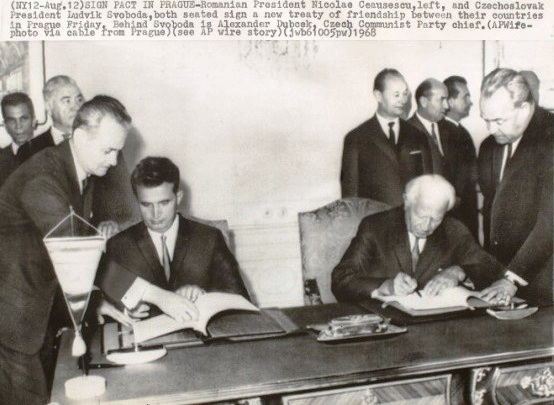
On August 12, 1968, President Nicolae Ceacescu of RSR and President of CSSR, General Ludík Svoboda, signed a Friendship and Economic Cooperation Treaty as a counter-reaction to the pressure of the other Warsaw Pact states on the Czechoslovak Command.
The Hungarian leader, János Kádár, met on his request on August 17, 1968 in Komárno with Alexander Dubček. Interpreted Moscow's great dissatisfaction with developments in Czechoslovakia and pointed out a possible military intervention.
On August 17, 1968, the President of the Republic, General L. Svoboda, was visited by Soviet Ambassador Stepan Vasilievich Chervonenko and informed him of the content of Brezhnev's letter to Alexander Dubcek, who did not receive a reply.
Administration of Military Counterintelligence, Central Military (Security) Authority in August 1968, deployed in Prague, component of the Ministry of Interior of the Czechoslovak Socialist Republic (3rd Administration - Military Counterintelligence). Major General Jozef Stavinoha held the post of Chief of Staff. The officers of the Military Counterintelligence Administration, the individual departments of the administration, separate departments at the Military Circuits and Army Offices, the 70th Operation Battalion (Prague) and other components were involved.
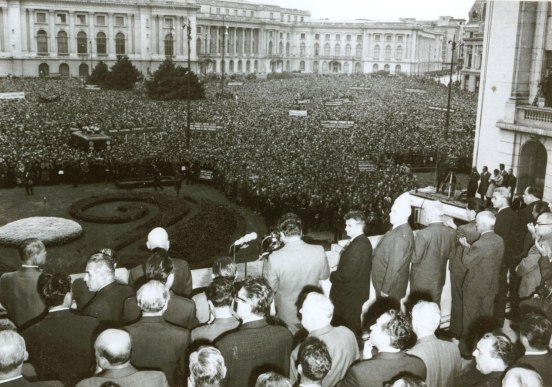
Bucharest, 1968. Child of Trianon is again determined after 30 years at any price to help contested sibling.
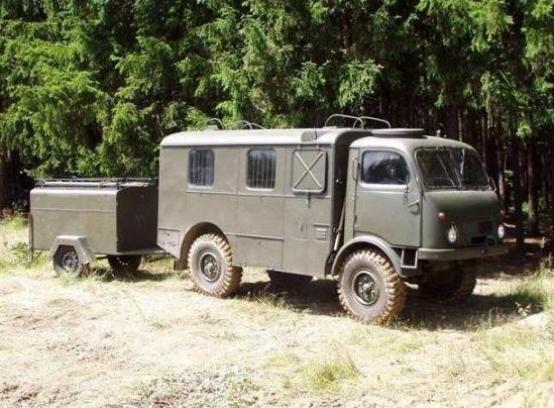
251st Air Defense Artillery Regiment PVOS of the Vysoké Mýto had engaged in service Anti-aircraft computer EUZ II 85 mm FLAK - Automatic table to the fire TRACK control - TZ PBX 57 - off-road van T-805 reduced body 1.5t.
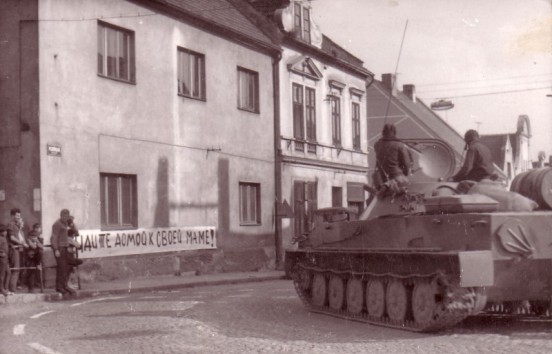
The light amphibious tank PT-76 of the Soviet interventionist army on August 21, 1968, on the highway Vysoké Mýto - Prague. On the night of August 21, 1968 at 24.00. already occupied Soviet 38th Army (38-я армия) zone for which it corresponded. 48th Motor Rifle Division (48-я мотострелковaя дивизия) Commander General A. I. Guskov reported to the Commander of the 38th Army Lieutenant General Alexander Majorov from NE North-East of Vysoké Mýto.
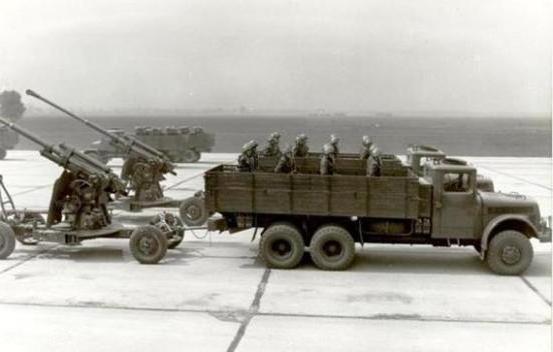
The image military truck Tatra T 111 (soldiers very popular) and canon 85 mm Mk 44S, back military truck Praga V3S in training at the airport.
Author in time ZVS in the year 1968 sign document 2000 words and was deputy of soldiers national service in crisis committee 251st anti-aircraft artilery regiment MU 5100 Vysoké Mýto.
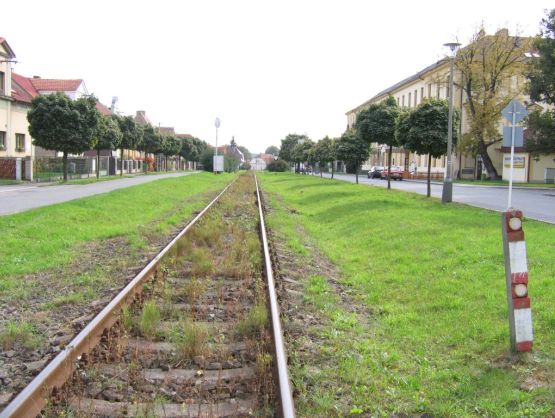
On the right of the former Czechoslovak army barracks 251th Anti-aircraft regiment Vysoké Mýto after 42 years about 300 m in front of the place where the locomotive of ČSD with the armored interventransporter. The route from Litomyšl to the railway station Vysoké Mýto today.
On the morning of August 22, 1968, when the 2nd Fire battery arrived in the morning, the author with two soldiers was ordered by the commander to kick off a ditch (officially for a telephone line) on public communications behind a fence against the battery. About 10.30 am four officers of the 2nd Polish Army of Intervention came to them and watched the result of their work. It made it harder for their motor vehicles to move around after a year of communication. They tried to talk to the author and his people, who, as a functionally superior to another, made it clear that the interview and their company did not respond to them in view of the service regulations of the Czechoslovak Army.
_____soviet.obr.trans.hav__ria_1968.90409_173229_23.jpg)
The accident of the armored transporter of the interveners at the railway crossing in Vysoké Mýto compared to the yearly communication of the Czechoslovakian 251th Infantry Regiment barracks in August 1968. Although the armored transporter overturned, but without visible damage. ČSD locomotive was matured for general repair.
PVOS Regiment in Vysoké Mýto after 21 August 1968. Early on 22 August 1968, the 24th Tank Regiment from the 2nd Polish Army Intervents moved with T 55A tanks through Litomyšl with a warrant to block the Czechoslovak 251st Anti-aircraft artillery regiment PVOS in Vysoké Mýto - Headquarters 82nd Anti-aircraft Brigade in Jaroměř 4th Army SVO. The city of Jaroměř was occupied during Operation "Danube" and the military crew was neutralized by the Polish Intervention Units of the 11th Panzer Division (JW 1588), Commander Col. Witold Wereszczynski.
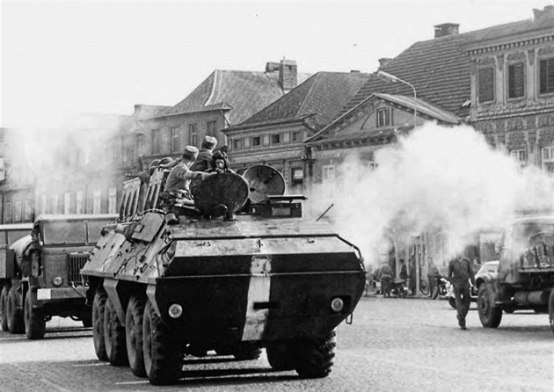
2nd Polish army of intervents on 22.08.1968. Her Supply Column with armed escort on armored OT-64 SKOT transporters at Litomyšl Square at 7.00 am. He leaves on the lane towards Vysoké Mýto.
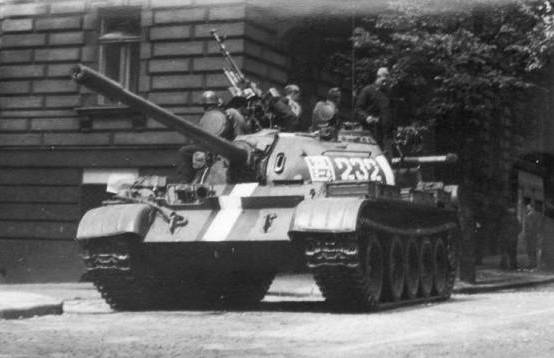
Most modern tank T 55 of Soviet intervention army in the 22.august 1968, a potential rival for artilery 2nd Fire Battery (KS-18) of MU 5100 Vysoké Mýto.
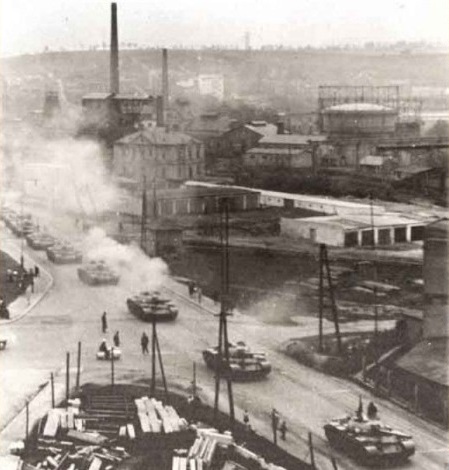
On the morning of August 21, 1968, West Bohemian spa town of Karlovy Vary occupied Soviet tanks of the 28th Tank Regiment (Halle) of the 27th Guards Motor Shooting Division Intervents (Commander General Nikolai Vasilyevich Storč) to block the elite first-class Czechoslovak 20th Motor Sooting Division (Commander Lt. colonel Jozef Němec), subject 62th Car Battalion in Ostrov nad Ohri. The town of Ostrov nad Ohri was occupied by the units of the Soviet Twenty Guards Shooting Division during the operation "Danube" (Commander General Grigory Ivanovich Děmidkov).
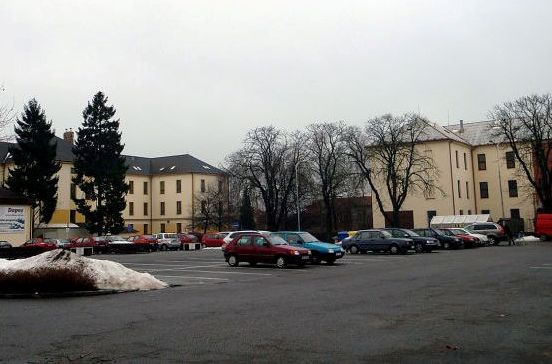
Barracks of the 2nd Fire Battery (KS-18) of 251st Regiment PVOS in Vysoké Mýto after 42 years today. When entering the 251st Regiment Air Defense commander and his speech on this day 26/09/1968 in appellplatz was released from the primary author of the services of NGO saccording to ref 00700-13/08. Today forget how humbled he was then a soldier.
P.S. Very few well-informed people know that the entry of the Warsaw Pact troops in August 1968 into the then Czechoslovak Republic was no surprise, and in the first place was one of the greatest failures of the policy of the then French Fifth Republic and its President General Charles de Gaulle. During the performance of the Basic Military Service at the beginning of 1968, the author came to direct information on the secret actions of the Czechoslovak Generality under the command of the French Army, led separately, without the knowledge of other NATO members and the Warsaw Pact. Signs of the previous contacts the author captured in 1967 in the 62nd automobile battalion Ostrov nad Ohří. SDECE - Documentation Service Extérieure et de Contre-Espionnage. Général Eugène Guibaud ?
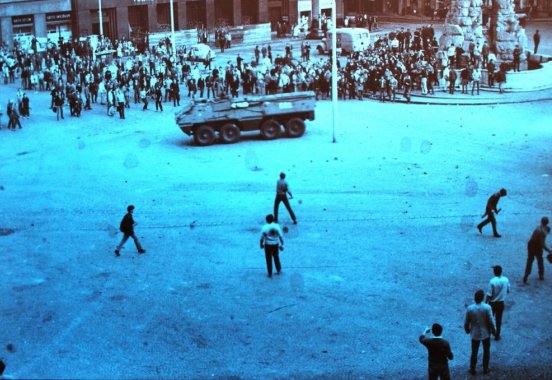
On 21 August 1969, state-of-the-art armored OT-64 SKOT transporters of the National Security Corps were deployed against demonstrators against the Soviet occupation. That day, 5 people were shot dead by members of the Public security and Peopleas militia uniforms, and several people suffered shooting injuries. Some people did not take part in the demonstrations, they were away from the streets. The shooting of the civilian population was allegedly unconditional. Against the demonstrators, the OT-64 SKOT armored carriers also intervened in Bratislava. Uniformed gunmen interfered with peaceful residents across the city and arrested them, for example, on public transport stops.
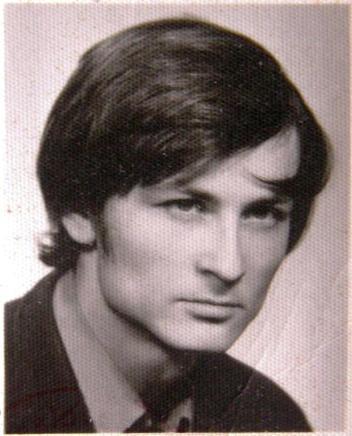
On Aug. 21, 1969, the author was imprisoned in connection with demonstrations against the occupation forces of the USSR in the Czechoslovak Republic. Due to the high number of imprisoned persons for this purpose, the state was allocated by VŠJŽ - the Military School of Jan Žižka from Trocnov. (FTVS UK Lafrankoni). Against the demonstrators, the OT-64 SKOT armored carriers also intervened in Bratislava.
On August 29, 1969, the President of the Czechoslovak Republic, Army General Ludík Svoboda, granted Alžbeta Ondrejkovicova for an exemplary performance of the state-run "Honors for Excellent Work" at the proposal of Prime Minister Oldřich Černík. They both had the knowledge that Ms Alžbeta Ondrejkovičová and her family were politically and civilly persecuted and discriminated against until 1968 due to the illegal conduct of third parties in Trenčín in coordination with the state authorities and the entrusted public administration. After 1969, she and her family were again civilly and legally discriminated against by the state authorities for the same reasons, despite the fact that the highest state authorities continued to demand that her husband repeatedly intervene in Lady Gizelle Kerney's family in the interest of the Department of Foreign Trade in Canada. Ondrejkovic and her husband Alexander Kerney (Kornhauser). Although the results of her interventions had a major economic impact on the Czechoslovak Socialist Republic, her and her family provided the state as the only counterpart to the systematic defamation of her person and her family by a third stint of the StB and the Communist Party. Investigation of crimes from the 1950s and rehabilitation of the injured were halted. Their actors have revived their illegal activities. Proof: Award for Excellent Work by Alžbeta Ondrejkovičová of 29.08.1969.
World Championships 1970 FIS in the High Tatras generate an organization that people like Ján Mráz, became a member of the leadership of the International Ski Federation (FIS), Valér Pobeha first boss Hotel FIS, Jozef Lukáč, Ladislav Harvan, Štefan Mašlonka a trustee and director of Czechoslovak State baths Štrbské Pleso ing. Karol Suchánek (husband of Magdaléna Ondrejkovičová, sister of the author's father captain reserve Aladár Ondrejkovič) who had higher ambitions ...
The White House received a letter from US President Richard Nixon. Organizers wanted to publish it, but the leadership of the Communist Party of Czechoslovakia banned it. The Organizing Committee has offered the Central Committee of the Communist Party of Czechoslovakia to provide a greeting message from the Soviet Union and offer it to the media together with the US. The proposal was rejected and a meaningful sentence "Sports events of this kind are joined by athletes from many countries." And under her signature Nixon, she remained strictly secretive ...
In the years 1968-1969, the author (not a member of the Communist Party and even R-kár was not subject to a review) was not reminded because many orthodox communists from his company ČSPD National Enterprise Bratislava did not behave according to the statutes of the Communist Party, after the entry of troops overturned their coat , they were worried to stay in their places. It is to be added that they have succeeded in doing so with some of the castles. For example, the members of the review committee who did not investigate KSČ officials from the leadership of the ČSPD National enterprise changed the national enterprise. Subsequently, they then exchanged the members of the review committee until they have verified them. However, the authorities of the Czechoslovak State Security did not forget the author and every year before 21st August he summoned him for a hearing until 1975, but it did not matter, the author did not get involved in any communication.
In fact, after L. I. Brezhnev came to power on October 15, 1964, disagreements grew between the political leadership and the general of the USSR and the Czechoslovak Socialist Republic. The state leadership and the ČSĽA general, regardless of their political orientation, were aware that their country had exhausted the possibilities of extensive growth. The population and area of the Czechoslovak Socialist Republic was limited, they limited the possibilities of the army and industry. In the event of a war conflict with NATO, ČSĽA would quickly exhaust its human capabilities by actively conducting military operations. The population in the limited area of the Czechoslovak Socialist Republic, mostly living in the center of the presumed area of war operations, would suffer irreparable loss of life. The state as well as the Czech and Slovak nations would disappear. The deployment of USSR troops on the territory of the state, given its small operational depth, did not solve these problems from the point of view of a Czechoslovak citizen. Such an unfavorable prospect in the event of a war conflict with NATO did not await any other nations of the Warsaw Pact countries.
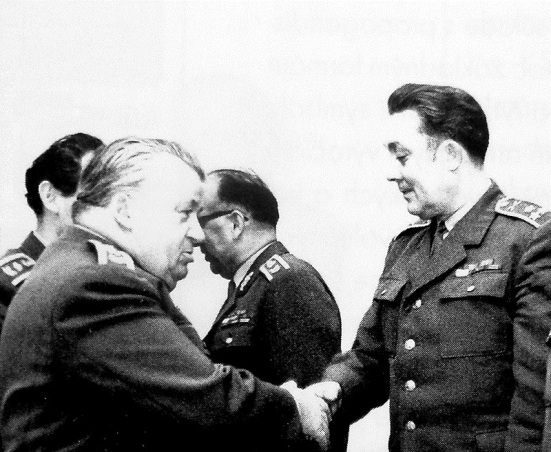
The head of the political administration of the Eastern Military District in Trenčín, General Jozef Kováčik, and the commander of the EMD in Trenčín, General Samuel Kodaj, stood on the opposite side of the political spectrum as the author and father's Ondrejkovič family, including its branch in Toronto. Both took positions as instructed by Soviet advisers. They both knew Alžbeta Ondrejkovičová personally. Ličková from ÚR SZPB, but behind her were against the rehabilitation of her family, they did not allow her to say this as the state needed her mediation in Canada for economic reasons.
After the disintegration of the USSR on December 26, 1991, by Declaration No. 142-H, a delegation arrived at Prague Castle with a request to annex Subcarpathian Russia back to the Czechoslovak Republic, but President Havel refused. Nevertheless, the local elders still have great nostalgia for the former Czechoslovakia, whose era many consider the "Golden Age". After this failure, one movement demands accession to the Russian Federation, or at least extensive autonomy within Ukraine, for example, following the example of Crimea, when it was still Ukrainian.
Notes: Lieutenant of the Infantry Jaroslav Dočkal in 1936-1937 study Military Academy Hranice, 1937 commander squad from the 3rd Cycling Battalion in Levice and Topolcany from 3rd Riding Brigade of 3rd Rapid Division including the 11th Dragon Regiment, where he served also the father of author second Lieutenant of the cavalry Aladár Ondrejkovič ; VKR - Vojenská kontrarozviedka ;
Resources: general Ludvík Svoboda ; Lady Gizelle Kerney ; Marta Hladká born Raisová ; Irena Bluhová ; cpt. aut. Krejza ; Literární listy ; Fritz Lederer ; cpt. of sea František Cibík ; Oldřich Černík ;
♫ Bob Dylan - Lay Lady Lay ; ♫ Hugues Aufray - Céline ; ♫ Dobiáš - Welcome march ; the former barracks of IC 4404 Virtual tour -Ostrov - Karlovy Vary Region, the former barracks of IC 4404 ;




_____soviet.obr.trans.hav__ria_1968.90409_173229_23.jpg)



 back
back 
